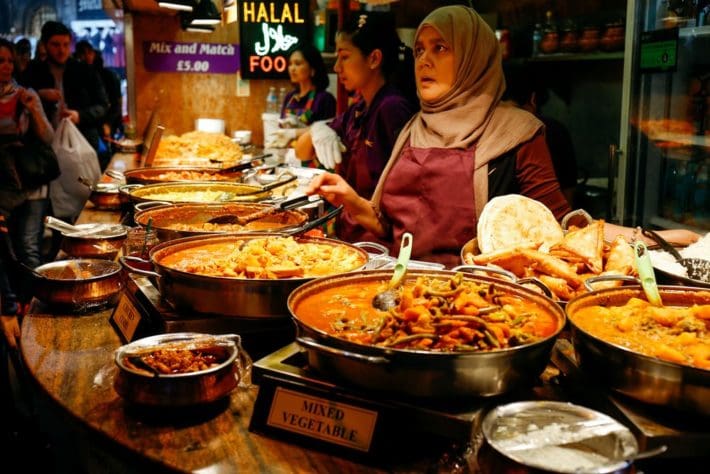The Islamic Economy is booming. It was worth $1.9 trillion last year and set to rise to $2.6 trillion by 2020 with the Muslim population expected to represent one in 4 people on the planet.
There are few market segments that offer the scale and pace of growth. And yet retailers and brands continue to lag behind in terms of understanding the needs of the Muslim consumer, particularly in markets where Muslims are a minority group.
To be fair, more efforts have been made recently by mainstream brands to at least acknowledge that Muslims do have slightly different needs and preferences and to try and introduce products that would appeal to them more. For example, the month of Ramadhan is coming up and it is great to see that supermarkets are dedicating aisle space for this month. So imagine the excitement of the Muslim consumer who enters a supermarket and sees the signs Ramadhan Mubarak (happy Ramadhan) adorning the aisles. Yes! Some acknowledgement of occasions that are special to us and hopefully no more traipsing around different independent grocery stores to stock up for the month! Perhaps we can pick up all we need from our Tesco or Sainsbury’s. But then upon closer inspection, their heart sinks and they walk on despondently. Really, is this the best they could do?
How much mango juice can one drink anyway? And besides we thought everyone knew fizzy and sugary drinks only dehydrate you more and after 20 hours of no fluids, we really need something that will quench your thirst and hydrate you for the next day – perhaps coconut water? If we did decide to indulge in a juice, there are other flavours besides mango that appeal to Muslims! And who has cake rusks and spicy lemon and chili crisps or Bombay mix when they break their fast of 20 hours?
It seems then that large bags of rice and flour (enough to feed a village), combined with vats of mango juice and ethnic snacks is the best that supermarkets could come up with. Have they actually spent any time with a Muslim family (and by the way Muslims come from all ethnicities not just South East Asia) during Ramadhan?
If they did, they would know that the start of the month is often a time when families will send hampers or gift trays with dates, dried fruit and perhaps even chocolate covered dates. At the end of the month to celebrate Eid, it would be nice if the supermarkets could please replace the dates with luxury chocolate (and no that box of chocolates with champagne in them are definitely not suitable!), greeting cards, scented candles and perhaps a bottle of sparkling grape juice. They are also shopping for Eid gifts for all, which can include new clothes and new toys for the little ones.
I highlight Ramadhan because it is such a key month in the Islamic calendar, just as Christmas is to Christians. And whilst, we don’t want to necessarily go down the path of commercialism that we have seen with Christmas, it is traditional to buy new clothes for close family members for Eid and also traditional to visit your friends and wider family bearing confections and money envelopes. So naturally, the demand for these will go up. As a young child growing up in the UK, we used to go ethnic grocery stores and retailers to try and find what we needed. However, as more of us are time pressed and in an age where convenience is king, it would be great to be able to find products suitable to Muslims in mainstream supermarkets and retailers.
And the final point, given the long days of fasting and how much time we dedicate to spending time with friends and family (breaking fast together), engaging in acts of worship, finding time to do work for charity, we are really time pressed in the actual month of Ramadhan therefore we need to stock up before the month starts just as you see the build up for Christmas.
Siddika Jaffer is the founder of The Halal Dining Club


